Nieuws
Juli 2023
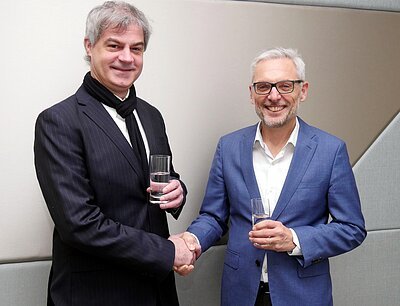
Drinking Water Protection: Matthias Maier and Wolfgang Deinlein to lead IAWR for another three Years
Reduction of Micropollutants and Agricultural Transition remain in Focus
Karlsruhe, 13 July 2023. On 11 July 2023, Prof. Dr. Matthias Maier was re-elected in Amsterdam as President of the International Association of Waterworks in the Rhine Basin (IAWR) and will continue to head the IAWR for another three years. IAWR Managing Director, Wolfgang Deinlein, was also confirmed in office. The office will therefore remain at Stadtwerke Karlsruhe until the end of 2026. "We are committed to maintaining or restoring the natural quality of groundwater and surface water for the benefit of drinking water customers. Pollution must be avoided or reduced at its source and must not get into the drinking water so that our children and grandchildren can still enjoy pure and natural drinking water and waterworks do not become costly and energy-intensive repair services for neglected water protection," said Maier after his re-election.
Matthias Maier and Wolfgang Deinlein have been leading the IAWR, in which water suppliers from six countries are members, as an experienced tandem since 2019. The IAWR has a strong voice teaming up in the so-called ERM coalition with like-minded drinking water associations in the river basins of the Danube, Elbe, Meuse and Scheldt with a total of 188 million people. The IAWR has provided essential impulses for legislation on the protection of drinking water resources at EU and national level as well as in the Rhine basin. Besides the establishment of the target in the Rhine basin to reduce micropollutants by 30% by 2040, the IAWR has given substantial input into the discussion on an agricultural transition towards organic farming without synthetic pesticides in water catchments. This is reflected in the corresponding processes for shaping EU legislation. "Sustainable agriculture without artificial pesticides and nitrate surpluses is also a crucial building block in protection against droughts and floods, because organically managed soils absorb more than twice the precipitation water which is then available in times of drought," Deinlein adds.
April 2023
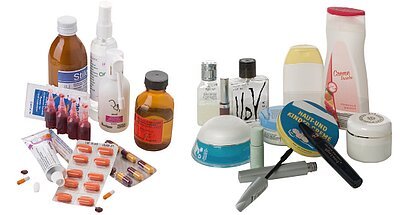
Upcoming Pharma legislation must connect milestones of EPR in UWWTD with new CLP amendment
Joint press release by ERM Coalition and ZeroPM
In the recast proposal of the EU Urban Wastewater Treatment Directive (UWWTD), an Extended Producer Responsibility (EPR) was proposed for medicinal products for human use and cosmetic products. The EPR system obligates producers (including importers) to cover monitoring and quaternary treatment costs.
On the 29th of March 2023, the European Commission postponed its proposal for the revision of the EU general pharmaceuticals legislation for the second time. At the same time, the introduction of hazard classes for persistent, mobile and toxic (PMT) and very persistent and very mobile (vPvM) substances into the Classification, Labelling and Packaging (CLP) Regulation, will go ahead.
EPR incentivises polluters to avoid environmental damage. European Union legislation now needs coherence between the UWWTD, pharmaceutical legislation and the amended CLP Regulation: In extended Environmental Risk Assessments (ERAs) as part of the authorisation, PMT/vPvM criteria according to the CLP Regulation have to be included.
ZeroPM co-coordinator Sarah Hale explains: Persistent and mobile substances do not break down over appreciable time scales and can travel long distances with water.
Coherence in legislation is strongly needed to tackle the increasing trend of organofluorine-containing pharmaceuticals. ZeroPM co-coordinator Hans Peter Arp adds "We call for a comprehensive alternatives assessment for these pharmaceuticals that are PFAS, and also a phase-out if their use is not critical for the functioning of society or where there is an acceptable, safer alternative available."
 Complete ERM coalition and ZeroPM press release 13.04.2023 (237,0 KB)
Complete ERM coalition and ZeroPM press release 13.04.2023 (237,0 KB)
Dezember 2022
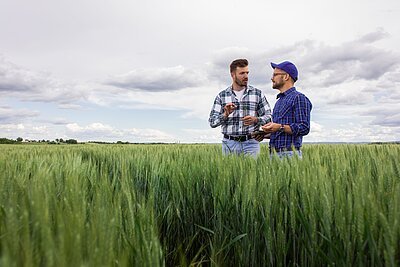
A sustainable supply of clean drinking water requires a ban on chemically synthetized pesticides in water protection areas now
Karlsruhe, 08.12.2022: In a News article in July, the German Environment Agency (UBA) pointed out that, even with “Codes of Good Practice”, conventional agriculture now leads to contamination of drinking water resources by degradation products (metabolites) of chemically synthetized pesticides/plant protection products. Pesticide authorisation procedures no longer offer sufficient protection. The main reason behind this are successful lawsuits by producers against pesticide use restrictions in Germany, which despite being based on the latest scientific findings, had to be cancelled by court order. Comparable lawsuits are also possible in the other EU member states.
"UBA draws attention to new loopholes in the authorisation procedure for pesticides. The EU Commission's proposal of 22 June 2022 for a Regulation (SUR, Sustainable Use of plant protection products Regulation), which provides for a ban on pesticides in water protection areas, is therefore all the more important. This is the only way to maintain the high quality of drinking water. However, natural pesticides that are permitted in organic farming should continue to be allowed, because a sustainable drinking water supply needs a switch to organic farming in water protection areas," says Prof. Dr Matthias Maier, President of the IAWR.
The presentation on 26 October 2022 at the SUR "Sensitive Areas" event at the European Parliament can be found here.
 Complete ERM Coalition press release 08.12.2022 (361,9 KB) (361,9 KB)
Complete ERM Coalition press release 08.12.2022 (361,9 KB) (361,9 KB)
Dezember 2022
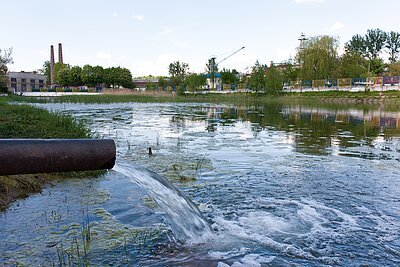
Industrial discharges must be effectively reduced by revision of IED
Karlsruhe, 08.12.2022: Currently, the EU Parliament and Council are dealing with the EU Commission's proposal for a revision of the Industrial Emissions Directive (IED), and amendments will be tabled in the Parliament this week. This proposal provides for stricter limit values for industrial discharges and a broader application of "best available techniques" (BAT). It is accompanied by a transfer of the previous Pollutant Release/Transfer Register (PRTR) into a more comprehensive Industrial Emissions Portal (IEP). In the view of the ERM Coalition, a disadvantage of the IED proposal consists in its limitation to large installations, so that about 80 % of emissions/discharges would be outside its scope. In its IED position, the ERM Coalition therefore calls for the scope to be extended to include all "Substances of Very High Concern" (SVHC) under REACH, in particular all per fluorinated and polyfluorinated alkyl substances (PFAS). In general, only substances for which a permit has been granted should be allowed in discharges. In addition, the impact of a discharge on drinking water abstraction points downstream should be assessed. In general, the disclosure of substances in the IEP should not be circumvented by declaring them as business secrets. And: A functioning legislation cannot do without controls and effective sanctions in case of violations.
IAWR-President Prof. Dr. Matthias Maier: "Drinking water suppliers take their task of supplying safe drinking water seriously. At the same time, the removal of pollutants must not be blamed solely on the waterworks, but must primarily aim at prevention at the source of pollution. Therefore, if highly complex technical measures are required in waterworks due to PFAS, this must be accompanied by a ban on substances and the closing of the corresponding approval gaps (e.g. PMT/vPvM substances) in order to prevent continuation of pollution. Protection against environmental pollution must not be limited to drinking water, while pollution via other intake pathways continues unabated as a result of lengthy prohibition procedures with uncertain outcomes. This is not in line with European primary law (Art. 191 TFEU). We very much hope that the regulatory competence is at all strong enough to ban hazardous chemicals like PFAS."
 Complete ERM Coalition press release 08.12.2022 (361,9 KB) (343,6 KB)
Complete ERM Coalition press release 08.12.2022 (361,9 KB) (343,6 KB)
Juni 2022
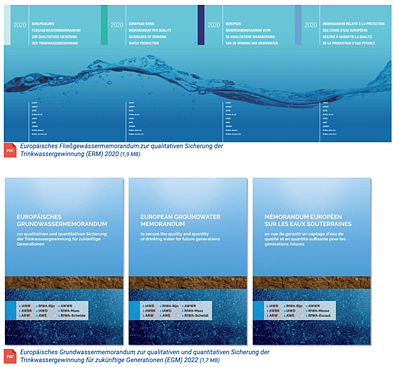
ERM Coalition highlights urgent requirements of drinking water supply towards Cabinet of Sinkevičius, EU Commissioner for Environment
Drinking water suppliers in the major European river basins of the Danube, Elbe, Meuse, Scheldt, Ruhr and Rhine (ERM Coalition) together with EurEau Secretary General Oliver Loebel highlighted the need for much stricter regulation of chemical substances in the European legislative framework to protect the drinking water supply.
During a presentation of the European River Memorandum (ERM) and European Groundwater Memorandum (EGM) to Simonas Šatūnas, the Head of Cabinet of EU Commissioner Sinkevičius, the parties emphasized that the current releases of PMT chemicals – substances that are persistent (P), mobile (M) and/or toxic (T) (new hazard categories PMT and vPvM) – into the environment threaten the supply of clean drinking water for future generations.
Moreover, a number of further requirements for drinking water protection was shown.
Head of Cabinet Satunas welcomed the presentation and promised to report back to Commissioner Sinkevičius. Also, he pointed out to the parties the importance of sharing these issues with other Commissioners involved in shaping current legislation. All parties shared common understanding on the importance of the recently started EU research project ZeroPM with a strong focus on prevention of PM/T substance emissions.
External link: https://zeropm.eu/
März 2022
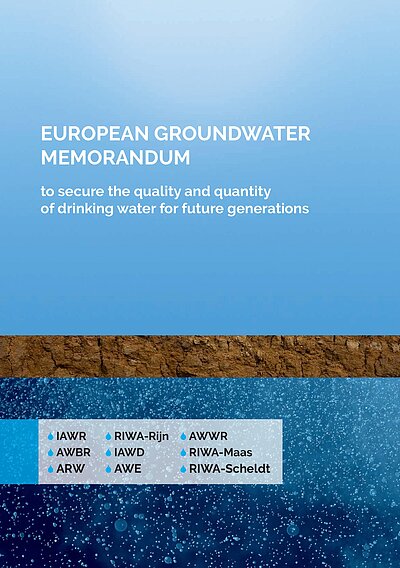
European Groundwater Memorandum adopted on World Water Day
European Coalition of Drinking Water Suppliers shows how the Drinking Water Supply from our valuable Groundwater Resources can be secured
Policy-Makers have to act
Right on time for today’s World Water Day and its theme “Groundwater: Making the Invisible Visible”, the ERM Coalition adopted the European Groundwater Memorandum to secure the quality and quantity of drinking water for future generations. The ERM Coalition comprises the associations of drinking water suppliers in the major European river basins of the Danube, Elbe, Meuse, Scheldt, Ruhr and Rhine, inhabited by 188 million depending on clean drinking water. The drinking water suppliers point out that groundwater as essential resource requires not only increased appreciation but also intensive qualitative and quantitative protection in order to secure future drinking water supply.
Two years after publishing the European River Memorandum (ERM), the ERM Coalition is now complementing these guidelines with the protection of groundwater in 5 key requirements. The European Groundwater Memorandum sets intervention values for action requirements. The aim is to achieve a level of protection that takes into account both direct health protection as well as the precautionary principle and the general demand for purity of drinking water.
Prof. Dr. Matthias Maier, President IAWR: "Especially in times of climate change, political decision-makers are called upon to ensure the essential protection of drinking water resources. This applies in particular to the revision of the EU Directive on the Sustainable Use of pesticides, for which the draft of the EU Commission is expected tomorrow, 23 March 2022."
Januar 2021
Drinking Water Protection: Call to appreciate and keep our Waters clean
Appeal to align the EU Common Agricultural Policy (CAP) with the European Green Deal
Recommendation to sign the European Citizens' Initiative "Save Bees and Farmers!"
"(Ground)Water is our most valuable material treasure on Earth. This treasure is becoming increasingly endangered and precious with climate change," says Wolfgang Deinlein, Managing Director at IAWR. Therefore, to protect public health, the IAWR, representing drinking water suppliers in the international Rhine Basin, together with drinking water supplyassociations in the Meuse and Scheldt river basins with a total of 81 million people, has launched a large-scale appeal to redirect the CAP and adapt it to the European Green Deal. The appeal is fully supported by the European umbrella organization of the water sector, EurEau.
"With this appeal, we support the goals of the European Green Deal regarding climate protection, the zero-pollutant ambition for a toxic-free environment, the from 'farm to fork, the chemicals and the biodiversity strategy with all due vigor," says Prof. Dr. Matthias Maier, President at IAWR. All actors in politics, industry and society are urgently called upon to unite forces in the upcoming, inevitable transition processes. He recommends EU citizens to sign the European Citizens' Initiative "Save Bees and Farmers!" as a concrete option for action on the CAP to protect drinking water from pesticide use and for a socio-ecological agricultural transformation.
Link to the European Citizens’ Initiative alliance "Save bees and farmers"
Dezember 2020
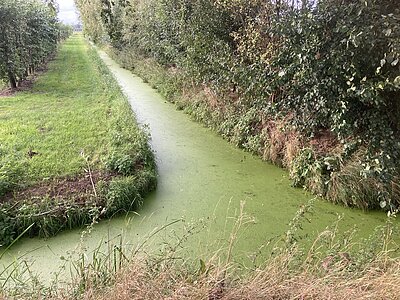
Dringende oproep aan de Europese Commissie, de Raad en het Europees Parlement voor een onmiddellijke koerswijziging in het gemeenschappelijk landbouwbeleid (GLB).
Zie de oproep op de Engelse editie.
Juni 2020
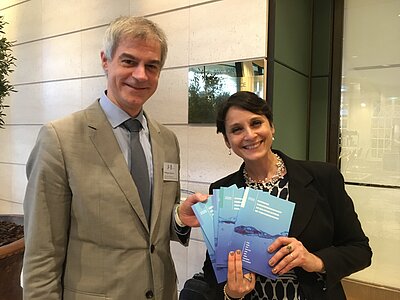
ERM Coalitie presenteert European River Memorandum (ERM) 2020 aan Veronica Manfredi, directeur Kwaliteit van Leven bij de Europese Commissie.
De ERM-coalitie wordt gevormd door verenigingen van drinkwaterleveranciers in de grote Europese stroomgebieden. Vandaag heeft de Coalitie het Europese Rivierenmemorandum (ERM) 2020 gepresenteerd aan mevrouw Veronica Manfredi, directeur Leefbaarheid bij de Europese Commissie, en haar team bij DG Milieu. Mevrouw Manfredi is namens de EU ook voorzitter van de Internationale Commissie voor de bescherming van de Rijn voor de periode 2020-2022.
De coalitiepartners van het ERM hebben gewezen op de noodzaak van wetswijzigingen en op het feit dat de bescherming van de drinkwaterbronnen uit voorzorg onontbeerlijk is als de EU in de toekomst een duurzame drinkwatervoorziening wil hebben. Daarom is nu effectieve, concrete en allesomvattende wetgeving nodig - als topprioriteit. Als reactie daarop presenteerde directeur Manfredi een aantal aanstaande wetgevingsbesluiten om het complexe vraagstuk van de waterbescherming aan te pakken en sprak zij haar unanieme steun uit, aangezien de kwesties van de ERM-coalitie in hoge mate overeenkomen met de holistische aanpak van de Europese Green Deal, een politieke topprioriteit van de Europese Unie.
Het Europese Rivierenmemorandum werd al eerder aan mevrouw Veronica Manfredi overhandigd tijdens de Rijnministersconferentie in Amsterdam op 13 februari 2020. Op 22 maart 2020, Wereldwaterdag 2020, werd het officieel gepubliceerd.
März 2020
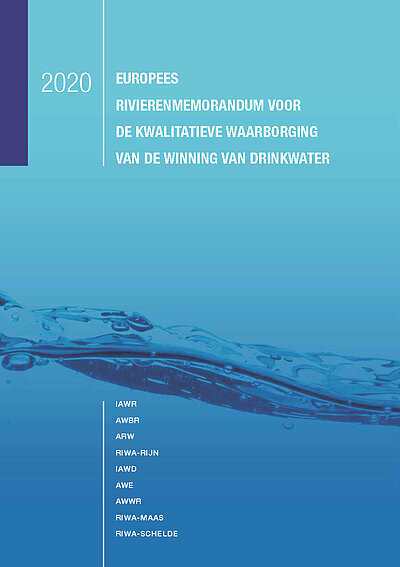
Europees Rivierenmemorandum aangenomen op Wereldwaterdag
De ERM-coalitie heeft het European River Memorandum 2020 (ERM) gepubliceerd. De ERM-coalitie bestaat uit de verenigingen van drinkwaterbedrijven in de belangrijkste Europese stroomgebieden van de Donau, de Elbe, de Maas, de Schelde, het Ruhrgebied en de Rijn, waar 188 miljoen inwoners afhankelijk zijn van schoon drinkwater. In het memorandum formuleren zij streefwaarden voor oppervlaktewater, die onmisbaar zijn als minimale kwaliteitsnormen voor een duurzame drinkwatervoorziening.
 Europees Rivierenmemorandum voor de kwalitatieve waarborging van de winning van drinkwater (1,9 MB)
Europees Rivierenmemorandum voor de kwalitatieve waarborging van de winning van drinkwater (1,9 MB)
Februar 2020
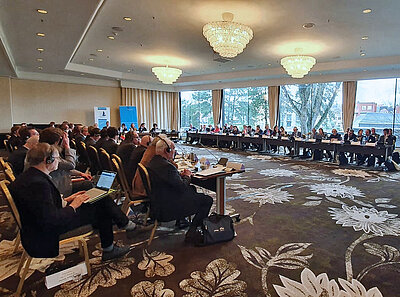
Historische doorbraak
Conferentie van Rijnministers beslist over effectieve reductie van microverontreinigingen door huishoudens, industrie en landbouw
Als RIWA persbericht vindt u hier.
De verklaring van IAWR-voorzitter Prof. Dr. Matthias Maier op de ministeriële conferentie over waterkwaliteit/microverontreinigingen op 13.2.2020 in Amsterdam werpt een licht op de achtergrond.
Het ministeriële communiqué en het programma "Rijn 2040" zijn beschikbaar op de ICBR-website.
Vanuit het oogpunt van de IAWR zijn nu concrete stappen nodig die zijn samengevat in de 12-puntencatalogus van maatregelen van de IAWR.
Februar 2020
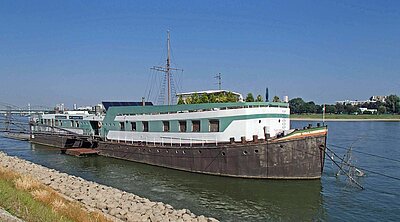
16. Rijnministerconferentie in Amsterdam
Op 13 februari 2020 vindt in Amsterdam de 16e Rijnministersconferentie plaats. Het is een vervolg op de conferentie van Bazel in 2013. De conferentie zal worden voorgezeten door de Nederlandse minister van Milieu, Van Nieuwenhuizen. De milieuministers van de acht Rijnoeverstaten en de Europese Unie zijn hiervoor uitgenodigd. Met het aantreden van directeur Veronica Manfredi van het Directoraat-Generaal Milieu begin dit jaar, heeft de Europese Unie het voorzitterschap van de ICBR overgenomen.
Naast het opmaken van de balans van het programma "Rijn 2020", dat nu ten einde loopt, staan kwesties als klimaatverandering (hoogwater/laagwater), de Rijn als leefgebied (vispasseerbaarheid) en waterkwaliteit (microverontreinigingen) op de agenda. Het nieuwe programma "Rijn 2040" zal worden aangenomen, waarin de verwachtingen en doelstellingen van toekomstige activiteiten ter bescherming van dit watersysteem voor de komende 20 jaar worden geformuleerd. De IAWR heeft dit proces in de aanloop naar de Rijnministersconferentie al op de voet gevolgd. De IAWR zal de belangen van de drinkwaterbedrijven behartigen, met name met betrekking tot de waterkwaliteit en de reductie van microverontreinigingen.
Dezember 2019
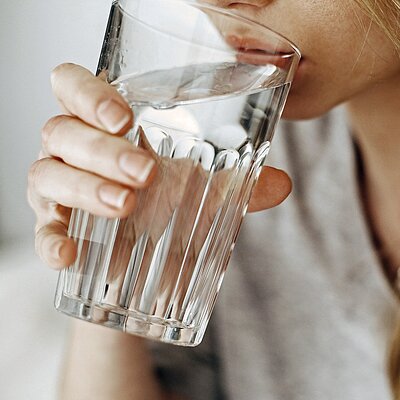
Persbericht van de Coalitie van het Europees Rivierenmemorandum
Europese Coalitie van drinkwaterleveranciers eist behoud van de Kaderrichtlijn Water en intensivering van maatregelen voor drinkwaterbescherming
De coalitie pleit voor de onbeperkte voortzetting van de Europese Kaderrichtlijn Water en voor de vaststelling van de criteria voor de bescherming van drinkwaterbronnen.
Het doel moet zijn de preventieve bescherming van het water in stand te houden en te versterken, zodat drinkwater ook in de toekomst met behulp van bijna-natuurlijke en duurzame behandelingsmethoden kan worden geleverd.
De coalitie vertegenwoordigt de behoefte aan schoon drinkwater van 188 miljoen inwoners uit 18 Europese landen die in de stroomgebieden van de Rijn, Donau, Elbe, Maas en Schelde wonen.
Oktober 2019
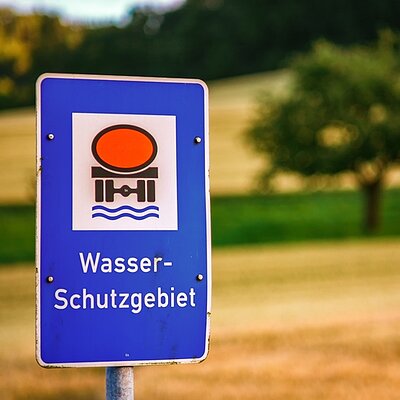
IAWR presenteert een 12-punten catalogus van maatregelen voor een duurzame drinkwatervoorziening
Naarmate de klimaatverandering voortschrijdt, wordt het steeds duidelijker dat deze gepaard gaat met een watercrisis. Daarom moet de bescherming van de resterende watervoorraden vanaf nu de hoogste prioriteit krijgen, want alleen met schoon drinkwater zal er ook een toekomst zijn voor mens, economie en milieu. De IAWR heeft omvattende maatregelen geïdentificeerd waarmee de bescherming van onze centrale middelen van bestaan kan slagen, als de uitdaging die voor ons ligt onverwijld als een haalbare kans wordt gezien.
 Noodzakelijke maatregelen voor een duurzame drinkwatervoorziening (241,1 KB)
Noodzakelijke maatregelen voor een duurzame drinkwatervoorziening (241,1 KB)
März 2019
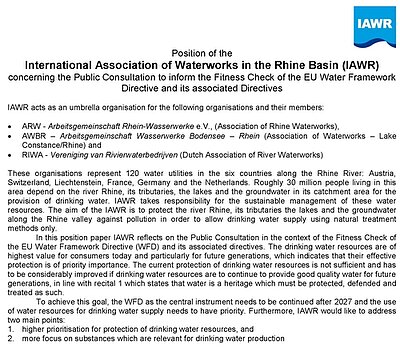
IAWR-standpunt over de Fitnesscheck van de KRW
Naar aanleiding van de EU-raadpleging voor een "Fitnesscheck" van de kaderrichtlijn water (KRW) heeft de IAWR een standpuntnota gepresenteerd en aan de Europese Commissie toegezonden.
Samengevat: De kern van de verklaring is de voortzetting van de kaderrichtlijn water na 2027, waarbij prioriteit wordt gegeven aan het gebruik van waterbronnen voor de winning van drinkwater. Het doel van de IAWR is een waterkwaliteit te bereiken die het mogelijk maakt om drinkwater te produceren met behulp van natuurlijke zuiveringsprocessen. Om dit te bereiken moet de bescherming van de drinkwatervoorraden aanzienlijk worden verbeterd en de hoogste prioriteit krijgen. Daartoe worden verschillende maatregelen genoemd om de preventie, minimalisering/vermijding van verontreiniging aan de bron te versterken. Het roept ook op tot meer aandacht voor stoffen die relevant zijn voor de drinkwatervoorziening.
 IAWR Position Paper on the WFD (Engels, 2 pagina's) (278,0 KB)
IAWR Position Paper on the WFD (Engels, 2 pagina's) (278,0 KB)
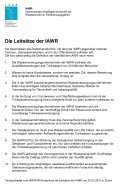
De richtlijnen van de IAWR
In de PR-commissie van de IAWR is een tiental thema's uitgewerkt betreffende de houding van waaruit de IAWR in de openbaarheid wil treden. Inmiddels heeft het bestuur van de IAWR deze als richtlijnen aangenomen en vormen ze sindsdien de grondslag waarop ook de drie basisorganisaties in het gehele stroomgebied van de Rijn zich naar buiten toe presenteren.
De samenwerkingsverbanden van de waterleidingbedrijven aan de Rijn is het er in de eerste plaats om te doen, het recht vast te leggen om verzekerd te zijn van water dat geschikt is voor de winning van drinkwater langs natuurlijke weg, de duurzame bescherming daarvan en het vasthouden aan zowel het principe van preventie als het principe dat de vervuiler betaalt.
